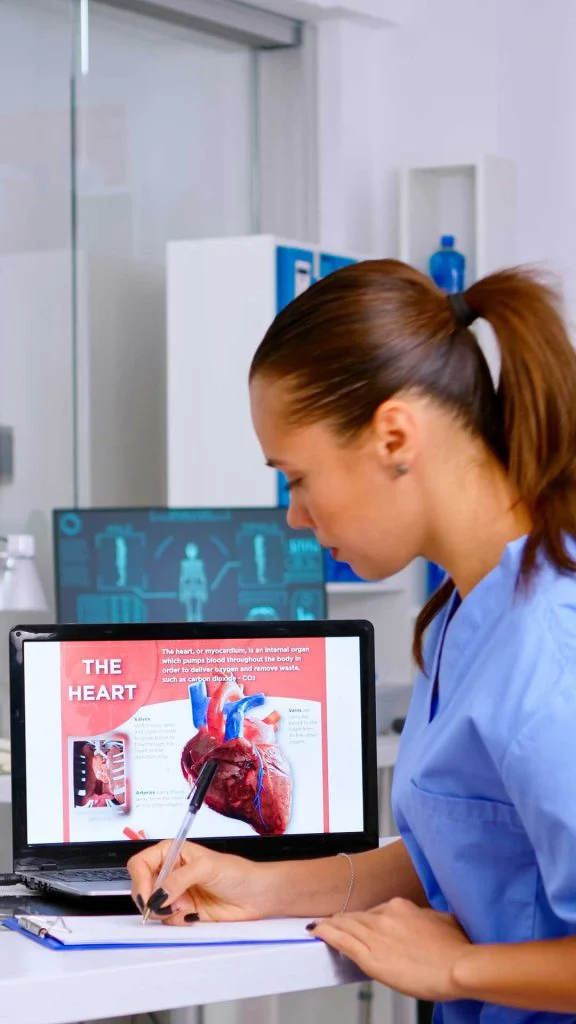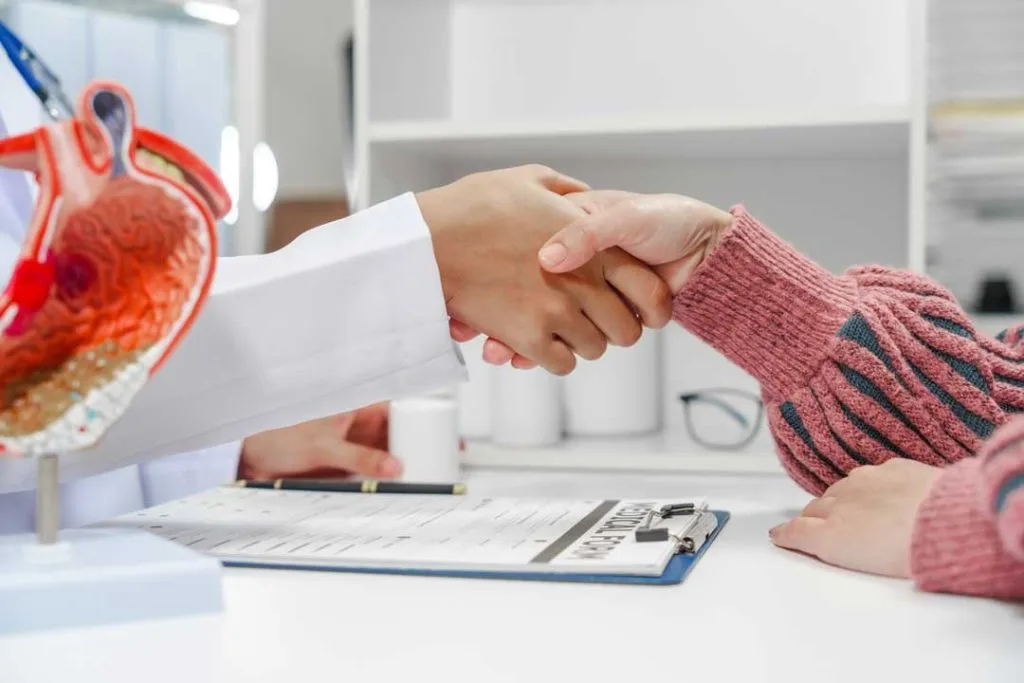Ever wondered, “What does a cardiologist do?” Understanding their role can help you stay proactive about your heart health. Let’s dive into the essentials!

Cardiologists are doctors who specialize in heart care. Their expertise and credentials in heart health allow them to diagnose, monitor, manage, and treat patients with various heart-related conditions. They are also able to provide medical advice to patients as a means of preventing or alleviating cardiac ailments they may have.
Cardiologist Help: What to Know and When to Go
To fully understand cardiology, it is important to learn more about the job of a cardiologist and the types of cardiologists that exist. Then, we’ll delve further, discussing the signs you may need a cardiologist and how to find the right specialist based on your wants and needs.
What Does a Cardiologist Do?
You know what a cardiologist is, but what exactly do they do? These specialists perform a variety of duties. Cardiologists often perform physical exams, install Holter monitors, and analyze imaging to monitor the heart.

They may order an ECG or stress test, perform cardiac catheterization or ablations, implant a pacemaker, or interpret an echocardiogram.
Cardiologists can also prescribe cardiac medications, recommend surgery, or collaborate closely with other medical specialists to ensure the best outcome for their patients.
Types of Cardiologists
What many people don’t realize is that there are different subtypes of cardiologists. These subtypes have more defined focuses.
Some of the most common types of cardiologists include:
- General Cardiologists: Emphasis on non-invasive heart conditions
- Interventional Cardiologist: Use minimally invasive procedures, like the use of catheters, to aid with cardiac conditions
- Preventative Cardiologist: Helps at-risk patients, such as those with diabetes, prevent cardiac conditions
- Nuclear Cardiologist: Use nuclear imaging to evaluate the heart
- Pediatric Cardiologist: Specializes in the cardiac health of babies, kids, and teens
Signs You May Need to See a Cardiologist
There are certain symptoms to look out for that could indicate a potential heart-related problem. These include:
- Severe or ongoing chest pain
- Heart palpitations
- Elevated cholesterol
- Swelling of the legs
- Cardiac problems that run in the family
- High blood pressure
- Shortness of breath

In most cases, your primary care doctor will be the one to refer you to a cardiologist. After receiving initial testing, your regular doctor may decide whether or not you should see a heart specialist for further diagnostics.
How to Find the Right Cardiologist
Finding the right cardiologist isn’t always easy. With so many options, you wonder if you’ll be able to find the perfect fit on the first try.
To help you find a great cardiologist, here are some things to keep in mind:

- Type of cardiologist
- Length of experience
- Reviews from past patients
- Appointment availability
- Locations they service
- Insurance they accept
Are you in need of cardiac help? Baptist Hospital OKC has some of the best cardiac specialists in the nation. Reach out to them today to see how they can assist.
When to See a Cardiologist: Key Signs
Learning about what cardiology entails can give you great insight into the heart care you may need in the future. It can also give you peace of mind knowing that these specialists can perform a wide range of diagnostic testing and provide various treatments. Rest assured that cardiologists are here whenever you’re dealing with potentially cardiac-related symptoms.

Jessi is the creative mind behind The Coffee Mom, a popular blog that combines parenting advice, travel tips, and a love for all things Disney. As a trusted Disney influencer and passionate storyteller, Jessi’s authentic insights and relatable content resonate with readers worldwide.
